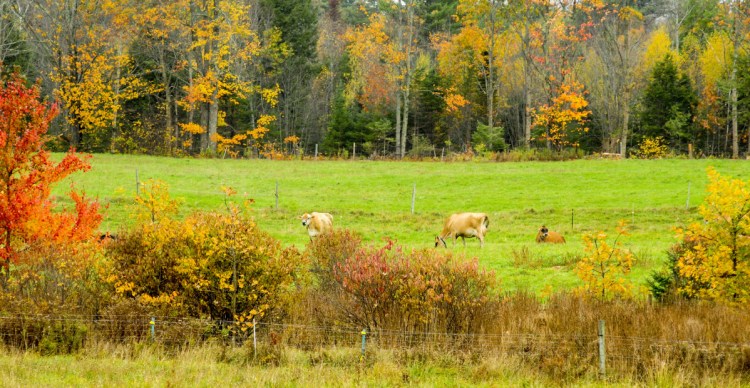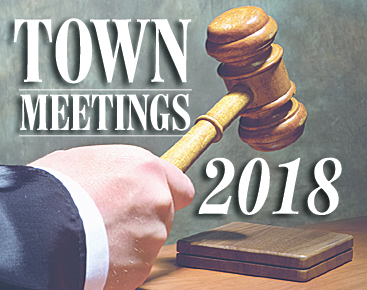A tax program that would make it easier for Monmouth farmers to stay afloat needs approval from the town’s voters next week before it can take effect.
Monmouth would be the second town in Maine to approve such a program, which would allow some working farms to apply for a 75 percent tax refund if they commit to conserving their farm land for 20 years.
Winslow was the first Maine town to adopt such a program, in 2016.
That program will be among the proposals going to voters Tuesday, when polls will be open at Cumston Public Library from 8 a.m. to 8 p.m.
As part of Town Meeting on that day, voters also will consider town and school budget proposals, both of which they’ll be asked to approve by secret ballot.
Officials in Regional School Unit 2 have proposed a $27.86 million budget for the school district, which includes Monmouth, Hallowell, Farmingdale, Richmond and Dresden.
That budget is up 1.34 percent from this year, and Monmouth taxpayers would be responsible for paying $4.83 million of it, according to documents presented to voters ahead of the district’s May 29 budget meeting. That’s up $6,524 from the amount Monmouth taxpayers covered this year.
Monmouth selectmen have proposed a $3.16 million town budget, which is down $57,173, or 1.8 percent, from this year’s budget.
There are no contested elections in Monmouth next week. Darlene Sanborn is running for a three-year term on the Select Board. Leanne Yeaton Burnham is running for a three-year term on the RSU 2 school board. Kristin Sanborn is running for a three-year term on the Cumston Public Library board of trustees.

Kristen Farney talks about yogurt making Oct. 24, 2017, at The Milkhouse Dairy Farm and Creamery in Monmouth. The town is considering a tax-break program for Monmouth farmers.
Supporters of the farm program say that it can be hard for farmers to maintain a profit margin and that such a proposal would help farmers continue to operate their businesses.
They argue that conserving farmland from development can bring other benefits, such as the recreational opportunities farmers may allow on their land. They also say that farms generally don’t require that many local services, particularly in proportion to how much property tax they have to pay.
No more than 3 percent of taxable land would be eligible for the exemption.
“The classic phrase is ‘Cows don’t go to school,'” said Nancy Smith, a Monmouth resident involved with a regional farming group called Kennebec West, last year. “Farmland doesn’t require public services the way sprawling development does. So it is appropriate to look at reducing the tax burden to support these farms. Farming is expensive. It is very capital-intensive.”
More information about the proposal is available on the town website and will be provided at the polls. It will need a majority of votes to pass.
Among the other measures voters will consider Tuesday is the proposed use of $90,000 to match a state grant to replace a 50-year-old culvert on Sanborn Road, which is not large enough and periodically gets clogged, resulting in flooding.
Charles Eichacker — 621-5642
Twitter: @ceichacker
Send questions/comments to the editors.




